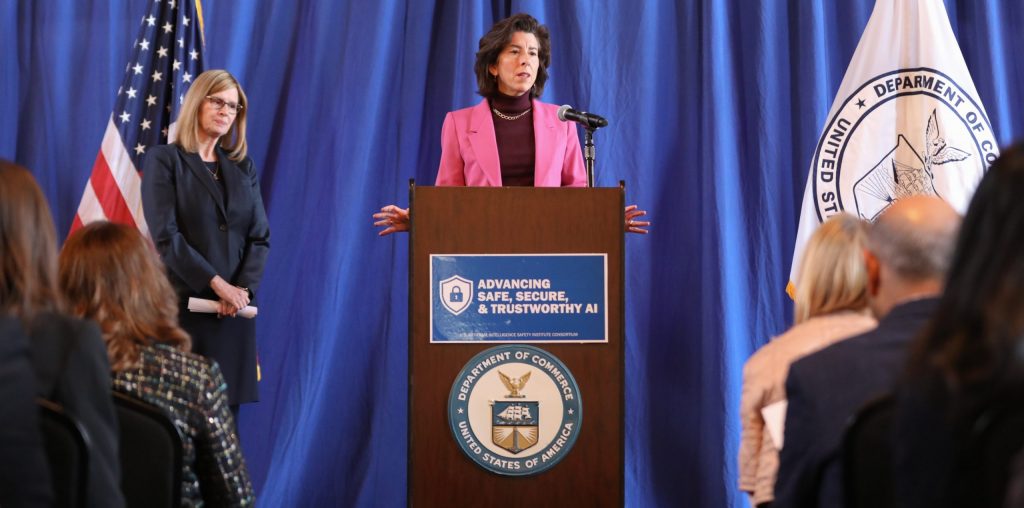According to the Biden administration’s announcement on Thursday, leading AI businesses are among over 200 entities that have joined a new US consortium to assist in the safe creation and implementation of generative AI.
US AI Safety Institute Consortium (AISIC) members were unveiled by Gina Raimondo, Secretary of Commerce, and include OpenAI, Google, Anthropic, Microsoft, Apple, Amazon.com, Nvidia, Palantir, Intel, JPMorgan Chase, Bank of America, and Meta Platforms, a subsidiary of Facebook.
“The US government has a significant role to play in setting the standards and developing the tools we need to mitigate the risks and harness the immense potential of artificial intelligence,” stated Raimondo in a press release.

The US AI Safety Institute (USAISI) will serve as the governing body for the partnership, which comprises BP (BP.L), IBM, Mastercard, HP, Qualcomm, Visa, Northop Grumman, Cisco Systems, as well as significant educational institutions and government enterprises.
Tasks for the committee include “developing guidelines for red-teaming, capability evaluations, risk management, safety and security, and watermarking synthetic content,” as stated in President Biden’s October AI executive order.
To ensure the security of AI, major AI businesses have committed to watermarking AI-generated content. The phrase “red-teaming” has its roots in American Cold War simulations, where the adversary was called the “red team.” Since then, it has been used to describe modern cybersecurity threats.
Aside from addressing the associated cybersecurity, chemical, biological, radiological, and nuclear concerns, Biden’s order also instructed agencies to establish criteria for that testing.
In December, the US Department of Commerce said that it would be drafting important guidelines and standards for the secure implementation and evaluation of artificial intelligence.
By bringing together the most extensive network of testing and evaluation teams, the consortium aims to lay the groundwork for a “new measurement science in AI safety,” as described by Commerce.
There is both hope and dread around Generative Artificial Intelligence (AI), which can generate media such as text, images, and videos in response to free-form instructions. Some worry that AI might render some industries obsolete, disrupt political processes, and even have disastrous consequences.
Despite the proactive measures taken by the Biden administration and multiple high-level forums, as well as legislative proposals that have attempted to address the issue, legislative progress in Congress regarding AI remains stalled.




